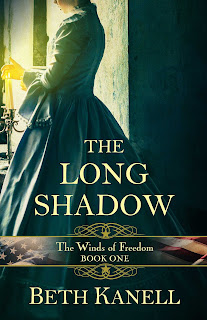Sure, autumn is great for crisp air, colorful leafs, and seasonal sports. But when cold rain or darkness (or needing a break) sends you back indoors, one of the big treats of the season is a new
Billy Boyle mystery from James R. Benn. And number 19 in the series, THE PHANTOM PATROL, comes out this month.
Apparently the publisher suffers from mild autumn flu or something, and has pushed back the release date to September 24. Definitely a nuisance for the author, as well as for bookstores hosting release events! But it will all work out. And I've got an advance copy, so I can fill you in and you can place a pre-order now, for delight in three weeks.
Yes, the new Billy Boyle is a keeper! This series has moved slowly through World War II, digging up extraordinary pockets of history that this young Irish cop turned wartime detective (working for "uncle Ike," General Eisenhower) discovers in assignments, official or not. His powerful friendship with Kaz, a Polish baron also working in his corps, his alliance with his boss Colonel Harding, and his romance with the very British Diana, who has even engaged in espionage behind German lines, have all lit up the books and given them emotional resonance.
In that way, THE PHANTOM PATROL cuts new ground for Benn. Although Kaz and a few others are with him as the book opens in the darkness of a Paris night, December 13, 1944, in the enormous Père Lachaise cemetery, much of the action depends instead on how Billy interprets what's going on a round him. We get to track his experience, his questions, and his choices, smart or not, as he sorts things out.
"I fired at the afterimage of the muzzle flash, then ducked as another burst slammed into the mausoleum. Kaz let off two more shots and I backed up, taking cover behind a tree as a gunman fired into the position I'd just vacated. I didn't have a clear shot at him, but as I scrambled between the graves, I realized these guys must be soldiers."
Most of these enemies escape—leaving only one behind, neatly executed so he won't talk. "Excellent planning and ruthless approach," comments Billy's friend Kaz. ""Who are we dealing with here?"
"And what the hell was in that grave?" I asked.
A quick bit of perspective: At this point in the war, the German occupying forces in France knew they'd been licked, and most officers invested in personal aspects of retreating. That included carrying away the spoils of war, which notoriously included priceless artwork. But others may have a stake in the profits. Soon it's clear that the gang activity Billy's hunting down must be engaged with masterful paintings. The obvious questions are, how are they being moved and how can the American team cut the supply lines?
Lightening up the action are cameo appearances from some of the American noncombatants embracing Paris and sometimes reporting for newspapers or enlarging their careers. Watch for J.D. Salinger and Ernest Hemingway, as well as British actor David Niven, drawing on his own military expertise from between the two wars. (I found myself pausing often to look up some of the surprises, and Niven's career was one of the really remarkable ones.)
.jpg) |
David Niven (Wikipedia).
|
Benn is fully trustworthy as a historian and researcher, and deftly braids his details into Billy Boyle's investigations and personal stakes. It's hard to guess how long this series will run, as Benn's been adept at mining the war, month by month—but readers know the war will end, maybe not as soon as Billy and Kaz and Diana would like, but as even the Nazis know, the tide has turned and can't be resisted. Ramping up the suspense of this period is Benn's subtle threat to the relationship between Billy and the love of his (young) life: Will a Boston cop and an English aristocrat find a way to sustain their love and purposes when peace finally arrives?
Billy's own comment near the end of the book sums up what's at stake, and I can quote it without spoiling the plot: "When this is over, it damn well better have been worth it. We deserved a world worthy of both the sacrifice of the dead and those exquisite paintings. We deserved a world of love and beauty."
Don't miss this episode; it's the footing for the remaining Billy Boyle volumes, a rich platform of meaning and suspense garbed in the significant history of our time.






.jpg)


